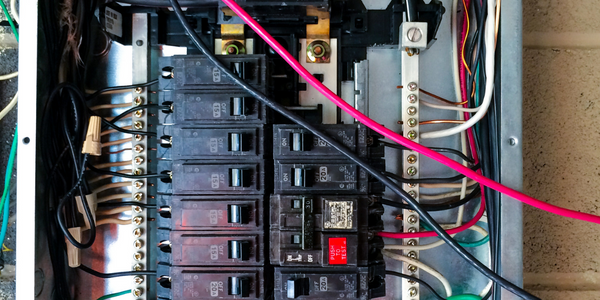技术
- 应用基础设施与中间件 - 区块链
- 功能应用 - 企业资源规划系统 (ERP)
适用功能
- 质量保证
- 销售与市场营销
用例
- 租赁金融自动化
- 机器翻译
服务
- 测试与认证
关于客户
Coinbase 是领先的加密货币平台,为购买、销售和存储数字货币提供数字市场。它是加密货币行业的先驱,经常为以某些方式翻译术语奠定先例。 Coinbase 的使命是通过提供加密货币来增加经济自由。为了实现这一目标,该公司制定了一项全球战略,包括将其内容翻译成多种语言,确保其与各个市场相关并引起共鸣。 Coinbase 致力于确保其信息清晰且可用,并确保更多的人能够获得交易和深入加密世界所需的工具。
挑战
Coinbase 是一家领先的加密货币平台,面临着针对全球市场本地化和翻译其内容的挑战。加密行业在不断发展,用于描述加密概念的英语术语经常变化。这给 Coinbase 的本地化专家带来了重大挑战,他们必须重新定义现有语言并进行大规模翻译。该公司还必须考虑加密世界的独特术语,确保他们的术语表和风格指南包含这些术语。另一个挑战是某些术语的翻译,例如“钱包”,它们在加密世界中具有不同的含义,并且在不同的语言中可能具有不同的含义。 Coinbase 还必须确保其翻译内容具有相关性、包容性,并且忠实于加密货币的个性和本质。
解决方案
Coinbase 应对这些挑战的解决方案是集中其本地化流程和资产。这确保了与所有供应商的一致性,他们可以从一个一致的事实来源进行工作。该公司还致力于让任何本地用户(无论其身在何处)都能轻松理解其翻译内容。为了实现这一目标,Coinbase 依赖于了解加密货币的语言供应商的帮助。该公司还保留了某些术语,例如“NFT”,用英语表示,因为他们认为这些术语在其他语言中不太有用。为了确保遵守法规,Coinbase 集中了术语表和风格指南等核心组件,并与法律和合规利益相关者合作,确保所有内容均符合规范。该公司还结合使用内部聘请的 LQA 语言学家以及第三方服务和供应商来进行规模测试。
运营影响
数量效益

Case Study missing?
Start adding your own!
Register with your work email and create a new case study profile for your business.
相关案例.

Case Study
Digital Transformation in Insurance: A Case Study of Menora Mivtachim
Menora Mivtachim, one of Israel's largest pension fund and insurance carriers, was facing a significant challenge due to demographic trends in Israel. The growing rate of retirement planning and services was putting unprecedented pressure on the already strained insurance sector. The pension claims process was bottlenecked with complexities, bureaucracy, and errors. Menora Mivtachim's existing pension process was heavily manual and spreadsheet-based, requiring a team of 10 full-time employees to manage. The process involved gathering applicant information, conducting personal surveys, compiling bank information, and finalizing agreements. To leverage the growing opportunity in the retirement sector and position themselves as innovative insurtech leaders, Menora Mivtachim needed to digitalize their process, streamline the claims experience, and reduce quote times through automated processes.

Case Study
ANZ Bank's Digital Transformation with Nintex Advanced Workflow
ANZ Bank, one of the top 50 banks in the world and the fastest-growing bank in Indonesia, was facing a challenge with its rapidly increasing transaction volume. The bank's existing business processes and workflow were becoming overwhelmed. Like most banks in Indonesia, ANZ was manually handling document submission and verification. Customers filled out paper loan applications and supporting documents, then delivered them to bank branches by mail or courier. Branch officers traveled to the bank’s headquarters or used postal mail, email, and phone calls to submit loan documents for verification. Lost or inaccurate documents created more emails and phone calls. Additionally, ANZ had to adhere to strict verification and financial regulations, including the Foreign Accounts Compliance Act. This act requires that all banks outside the United States provide key information about U.S. clients, including citizenship validation, to the Internal Revenue Service–a complex yet crucial process.

Case Study
Automation in Mining: Unleashing Productivity and Efficiency with 5G
The mining industry, a significant contributor to global economic activity with revenues exceeding USD 500 billion, is facing a challenge of improving efficiency and profitability. The industry is gradually shifting its focus towards automation as the next area of opportunity. Boliden, one of the world's most successful mining companies, operates the Aitik mine, the largest open pit in Europe. The Aitik mine is expanding, and with the increase in production from 36 million metric tons of ore to 45 million metric tons, the amount of rock removed will also increase significantly. However, increasing the number of machines required for rock removal in a busy mine is not a straightforward task. Additionally, every blast creates toxic gases that need to dissipate before humans can enter the area and begin excavation. The challenge lies in improving efficiency, managing the increased production, and ensuring safety in the harsh mining environment.

Case Study
Streamlining Agricultural Automation with Eaton’s Package Solution
Grossi Electric, a full-service electrical contracting company, was tasked with facilitating the hulling, dehydrating, and preparation processes at a walnut processing plant in Waterford, California. The company aimed to explore innovative options for creating cleaner and more efficient control panels that would eliminate the intensive time, labor, and costs associated with excessive point-to-point wiring. As a rapidly growing electrical contracting company, Grossi Electric was also concerned about managing risk and cost while attempting to establish a new and unfamiliar service offering in a mature market for control products. The walnut processing plant presented a prime learning opportunity for the company to discover the best way to build more tailored control panels for its customers. The challenge was to enable a lean automation process that was smarter, simpler, more effective, and of unique advantage for clients.

Case Study
Dell's Transformation: Boosting HR Productivity with RPA and Workday
Dell Technologies, a global tech giant with over 160,000 employees, was grappling with high-volume and repetitive transactional HR processes. The company was seeking to improve efficiency and cost-effectiveness while freeing up HR employees for higher-value, strategic work. The challenge was to eliminate transactional work for end-to-end processes such as open requisition recruiter assignments, onboarding process reminders and status updates, and offer status management. This would allow HR employees to focus more on person-to-person interactions.

Case Study
Overcoming Data Challenges in FinTech: A Case Study
The Covid-19 pandemic has acted as a catalyst for the FinTech sector, accelerating investments and technological progress. However, data and technology remain significant challenges, hindering further progress for FinTechs and their partnering traditional financial institutions. Among FinTechs globally, 81 percent have reported data to be their biggest technical challenge. These data issues are split between leveraging data for AI-ML (faced by 41 percent) and connecting to customer applications and data systems (faced by 40 percent). Other data issues faced by FinTechs include security (40 percent) and deployment in multiple clouds (39 percent). The consequences of these data issues include trouble innovating further due to a lack of clear picture about the type of products and services that customers require and about the businesses themselves. The inability to connect to customer applications directly impacts the user experience and the ability to offer their present products to the wider customer base. These issues also hinder securing partnerships with incumbent banks, and more seriously, regulatory compliance.







